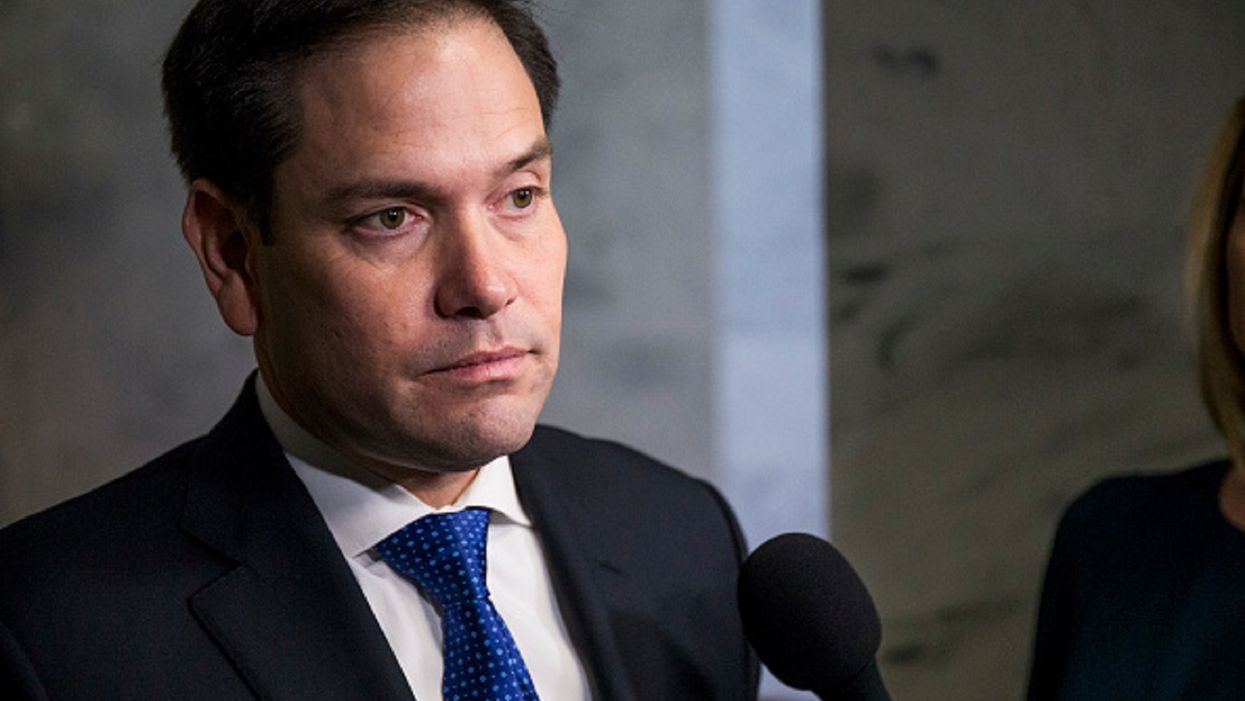
Zach Gibson/Getty Images

Florida senator says he's not ready to endorse President Trump issuing a national emergency over border wall
Florida Sen. Marco Rubio (R) says he's not ready to endorse President Donald Trump declaring a national emergency in order to build a border wall, warning that such broad use of executive power sets the stage for future actions that might not be as palatable to conservatives.
Speaking on CNBC's "Squawk Box" on Wednesday, Rubio said, "I think the president has broad powers to declare national emergencies. I think they should be used very judiciously. I'm not prepared to endorse that right now; I want to think about it some more, I want to dig in to some of the historical record as to why that power is there, how it's been used in the past."
"I think we need to be very careful about that," the senator continued. "It sets long-term precedents, and I can tell you, that for people on my side of the aisle, one of our concerns we should have is: If today, the national emergency is border security and it entitles him to go out and do something, and we all support that — tomorrow, the national security emergency might be, ya know, climate change, so let's seize fossil fuel plants or something."
Sen. Rubio added, "Maybe it's an exaggeration, but my point is we've got to be very careful about endorsing broad uses of executive power in our Republic."
Sen. Marco Rubio said he's not ready to support Trump declaring a national emergency over border security because under a Democratic president, "the national security emergency might be climate change." pic.twitter.com/2taNpiW5Nr
— Rebecca Harrington (@HarringtonBecca) January 10, 2019
That matter is up for interpretation.
As Professor Andrew Rudalevige wrote in The Washington Post on Thursday, "nothing in the [National Emergencies Act of 1976] says there actually has to be a national emergency — only that the president has to declare one."
Rudalevige also points out that "as of 2019, the United States has been in a continuous state of emergency for four full decades" — just as it was from 1933 to 1973, which saw emergencies declared for The Great Depression, World War II, and the Korean War.
According to the Brennan Center for Justice, U.S. presidents have declared 58 national emergencies since 1979. Many of those declarations, which were issued under the NEA, involve trade restrictions or the prohibition of transactions with different foreign entities.
With such vague guidelines on executive powers, a controversial declaration could end up being decided on by a judge. Rep. Jim Jordan (R-Ohio) said Thursday that's exactly what he fears might happen if President Trump uses the NEA statute to build a border wall.
"I think we should do it legislatively," Jordan told reporters, "because if [Trump] goes the emergency route, I'm convinced it's going to wind up in court."